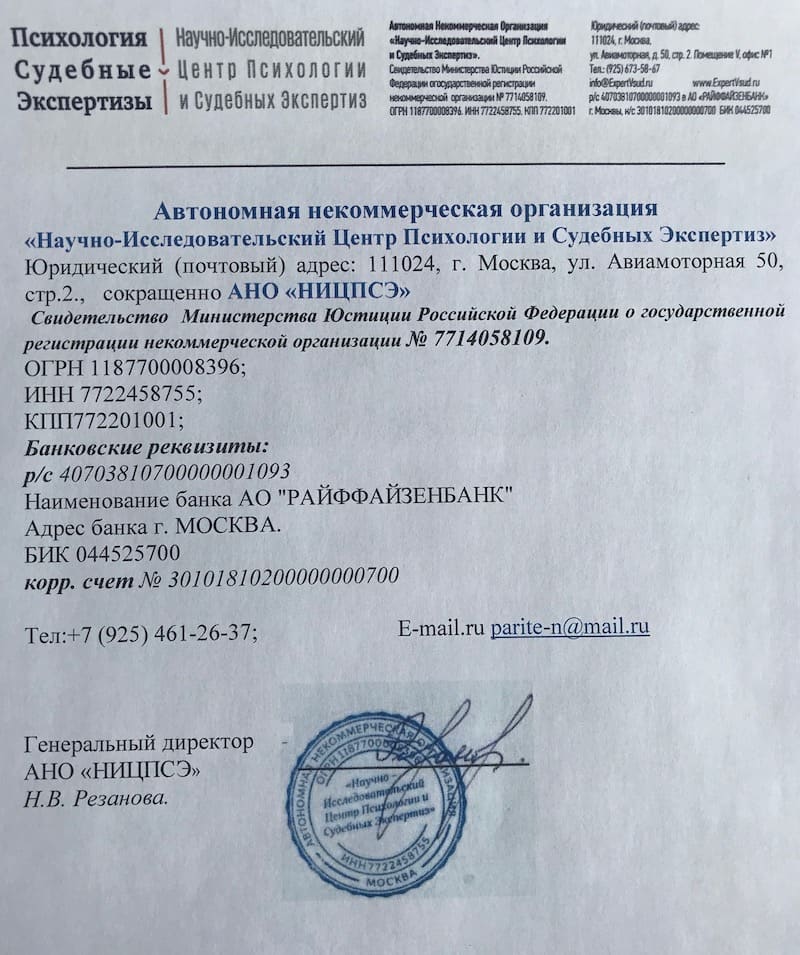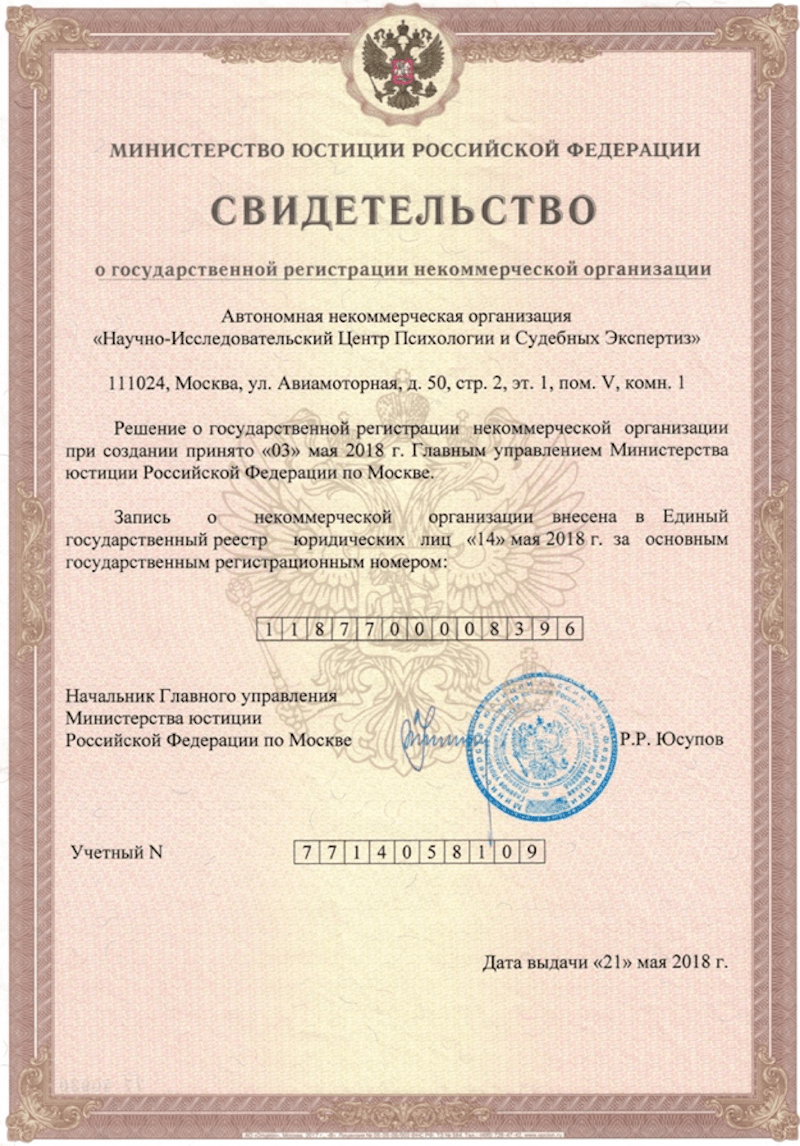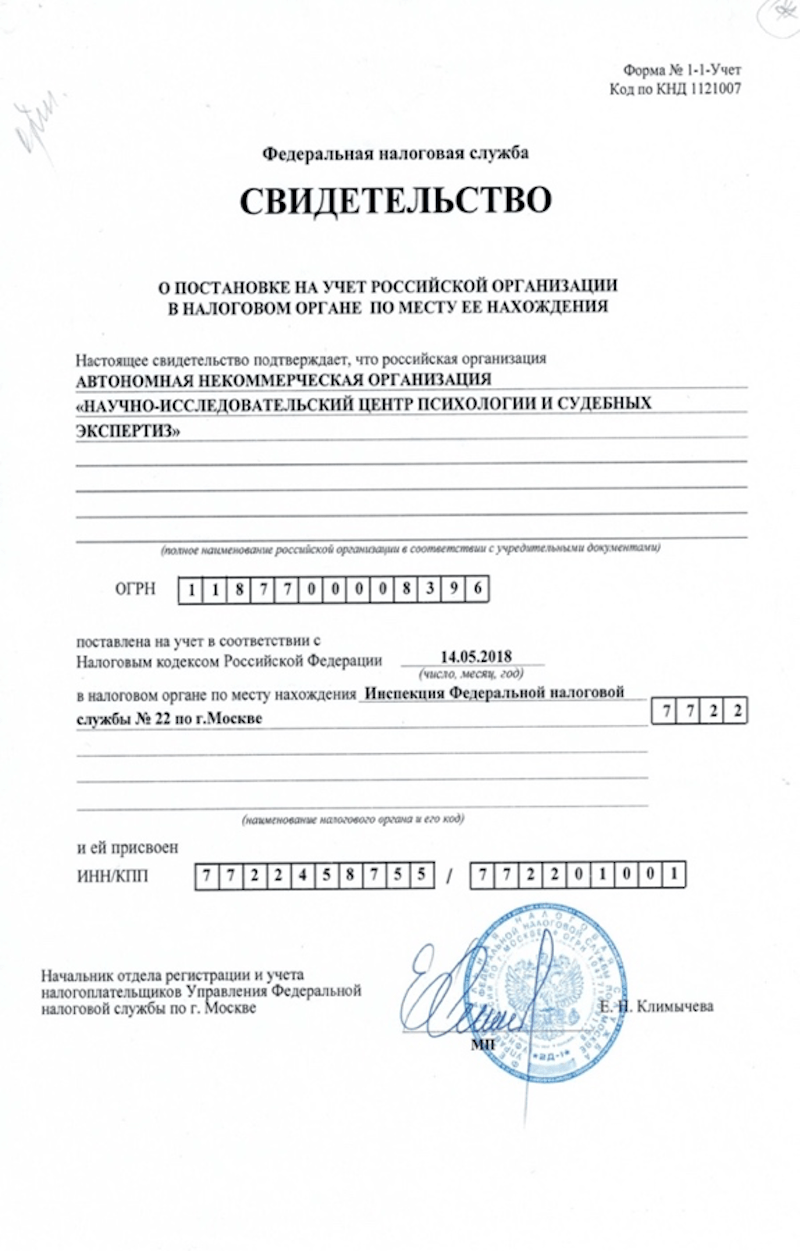- Forensic Psychological Expertise.
- Pre-trial psychological research in the framework of parent-child relationships
- Forensic psychological examination in the framework of the conclusion “post-mortem forensic psychological examination”
- Judicial Comprehensive Psychological and Linguistic Expertise
- Judicial complex psychological and psychiatric examination
- Judicial complex psychological, linguistic and religious expert examination.
- Psychologist's review
The Family Code contains a whole range of legal norms related to the right to raise children and protect their interests. Disputes related to the deprivation / restriction of parental rights, determining the procedure for communication with a minor, determining the place of residence with one of the parents after the divorce are the subject of psychological research.
From the point of view of psychological research, according to the selected category of cases, it is necessary to establish legally significant features of individual objects under investigation, which are the psychological characteristics of the participants in the disputed relationship (individual psychological characteristics, the characteristics of the parents' mental activity, the level and psychological characteristics of the child's development). At the same time, psychological research is situational and it is characterized by the establishment of a complex of psychological characteristics of parents and the child, their behavior, relationships, based on the analysis of which an integral psychological picture of the family situation is compiled. When considering cases related to the protection of the rights and interests of minor children, the circumstances necessary for establishing include: specific conditions for the upbringing, and not just the material maintenance of the children; the age of the children, the features of their development, the nature of the relationship of parents between each other and each of them with the child, the attitude of children to parents; positive or negative impact of parents on the development of children, as well as personal qualities of parents on the personal affection of the child.
These circumstances are psychological. Therefore, when considering civil cases related to the restriction and / or deprivation of parental rights, determining the order of communication with a minor, determining the place of residence with one of the parents after the dissolution of the marriage, special knowledge is necessary. So, along with the solution of other issues, specialists in the field of psychology can assess the impact on children, their mental state, as well as assess the child’s affection for each of the parents, taking into account his age and mental development, the dynamics of family conflict. Establishments for the presence / absence of child abuse in various forms (physical / psychological abuse).
The main task of pre-trial psychological research consists in the fact that the studies allow us to establish expediency and the type of further forensic examination (if necessary), form questions to the expert. There is a clear division of competence specialist psychologist during pre-trial research and psychologist expert, psychiatrist experts at different stages of a comprehensive judicial psychological and psychiatric expert study of persons in disputes about raising children, the algorithm is described and described in detail in the works of F.S. Safuanova (2003), N.K. Vostroknutova, N.K. Kharitonova, F.S. Safuanova (2004). About what, in order to avoid the erroneous identification of the concepts of procedural significance, such as “expert opinion” and “expert opinion”, experts of ANO “NICPSE” carry out, including in writing, relevant explanations.
Types of research:
- The study of the psychoemotional state of each parent, in the current period of time, based on the results of individual psychological diagnostics.
- The study of interpersonal relationships of parents of minor children, especially intra-family relations.
The goals and objectives of the study:
Establishment of individual psychological characteristics of each parent; their emotional state, the presence and nature of anxiety; study of the characteristics of the parental position of the mother and father of children.
Features of parent-child relationships, the relationship of each parent to children, the attitude of children to parents, to each individual; relationships among themselves, with other family members, social environment; content of the conflict between parents.
The results of psychological research should be reflected in the conclusion of a specialist and have a standard research structure:
- Introduction; The main part; Conclusions and Answers to questions;
- Reflect the type, objectives and goals of the study;
- Test material that is adapted to the goals and objectives of the study;
- The specialist must adhere to the algorithm for using current techniques;
- The qualification and competence of a specialist must be confirmed by documents and comply with established standards (education / experience of practical work);
- The expert’s opinion should be based on scientifically sound, standardized (i.e., various types of questionnaires, psychometric testing), non-standardized (evaluating the active sample process), projective (reflecting the individual’s inner world - color, patterns and other tests) methods;
- The findings of an experimental psychological study (EPI) of the child and parents should be objective and reliable.
It is important to note that psychologist has the right to independently determine the feasibility and scope of the methods used in the study of the subject. However, when choosing a set of techniques, a specialist must use and take into account the following principles:
- The relative simplicity of the applied methods.
- The speed of their implementation.
- The completeness of the study of the investigated phenomenon.
- Mutual complementarity of the applied methods.
- High total validity (- the degree of validity and suitability of the application of the methods and results of the study in specific conditions; - a measure of the conformity of the methods and results of the study to the tasks set).
It is worth noting that the Instruction of the Ministry of Health of the Russian Federation on filling out the industry registration form No. 100 / у-03 “Conclusion of a forensic psychiatric expert (commission of experts)” (Appendix No. 1); Instructions for filling out the industry accounting form N 100 / у-03 “Conclusion of a forensic psychiatric expert (commission of experts)” (Appendix N 2). - The requirements set forth in the Order of the Ministry of Health of the Russian Federation of August 12, 2003 N 401, apply exclusively to forensic psychological psychological examination (EIT).


